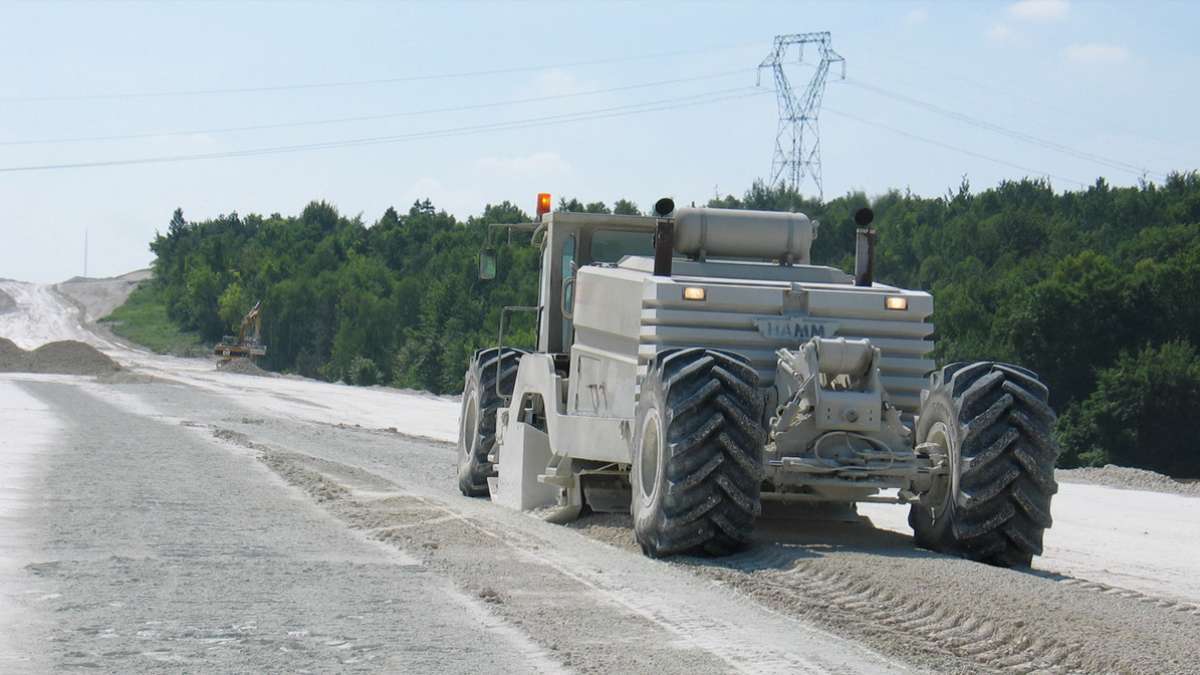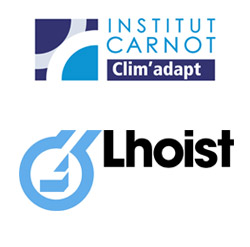THE USE OF CHALK TREATED WITH LIME IN HYDRAULIC WORKS
Cerema, which holds Institut Carnot certification for Clim’adapt, has undertaken a joint research project with the company Lhoist to determine the conditions in which chalk treated with lime can be used in the construction of dikes. While chalk is often used for road infrastructure, its underwater behaviour is not well documented.

The need
Lhoist is the European leader in lime manufacturing and sales. Lime is used to optimise the reuse of natural materials produced from earthworks on substructure worksites. In Hauts-de-France, Normandy and Aquitaine, use of the chalky substratum to build road embankments dates back a long time. Work on the Seine-Nord Europe Canal project will generate large volumes of chalk. Treating natural materials with lime improves their mechanical properties and makes it easier to reuse them in embankments. However, before using chalk in a canal project, it is necessary to show that in addition to the parameters for using it as current fill, its permeability properties and behaviour when immersed in water are appropriate for a canal context. There is also a need to establish which water state and lime dosage renders the treatment most effective for the region's chalk.
The partnership
For the purposes of this partnership with Lhoist, Cerema is mobilising three Regional divisions, which together provide the additional competences needed to handle the project:
- Hauts-de-France: high level of knowledge about the region's materials, and capacity to test both the behaviour of chalk subjected to repeated compaction, and the load-bearing capacity of lime-treated chalk before and after immersion;
- Normandy-Centre: the national standard for hydraulic works, and a specialist in reusing processed materials to build such structures;
- West: has the equipment to test the compression strength of the treated chalks, before and after immersion.
The project, which concluded at the end of 2021, comprised two phases. The first was aimed at evaluating the chalk fines produced by successive compacting operations. The second sought to establish the underwater effectiveness of lime treatment.
The innovation
In road embankments, lime improves the materials' characteristics (aids compaction, improves load-bearing capacity, etc.). The partnership between Lhoist and the Institut Carnot Clim’adapt aims to establish whether lime treatment of chalk is effective for use in dikes. According to the protocols developed, the lime will react with a significantly higher proportion of chalk fines after the initial compaction than before it. Subsequent compaction operations have little impact on this finding. The suggested procedure, based on reconstituting a reference particle size, avoided the need for hydration and drying cycles; these are necessary for particle size analysis, but in this case they would have caused the chalk to dissolve and recrystallise, modifying its structure. With the results of the tests on lime-treated chalk (load-bearing capacity, compression strength, permeability, etc.), the project partners will be able to specify the conditions for the use of chalk in hydraulic works, which is a major innovation.

A partnership
 Institut Carnot Clim’adapt is developing partnership-based research, i.e. management of research work conducted by public sector laboratories in partnership with socio-economic players, businesses of all sizes and local authorities, in order to meet their needs.
Institut Carnot Clim’adapt is developing partnership-based research, i.e. management of research work conducted by public sector laboratories in partnership with socio-economic players, businesses of all sizes and local authorities, in order to meet their needs.
By making use of Cerema’s exceptional resources and regional coverage relating to research, engineering, expertise and equipment, Clim’adapt supports its partners to enable them to transition to a resource-efficient, carbon-free, environment-friendly economy, linked to new life styles engendered by digital transition and adaptation to climate change.
Discover Institut Carnot Clim'adapt


